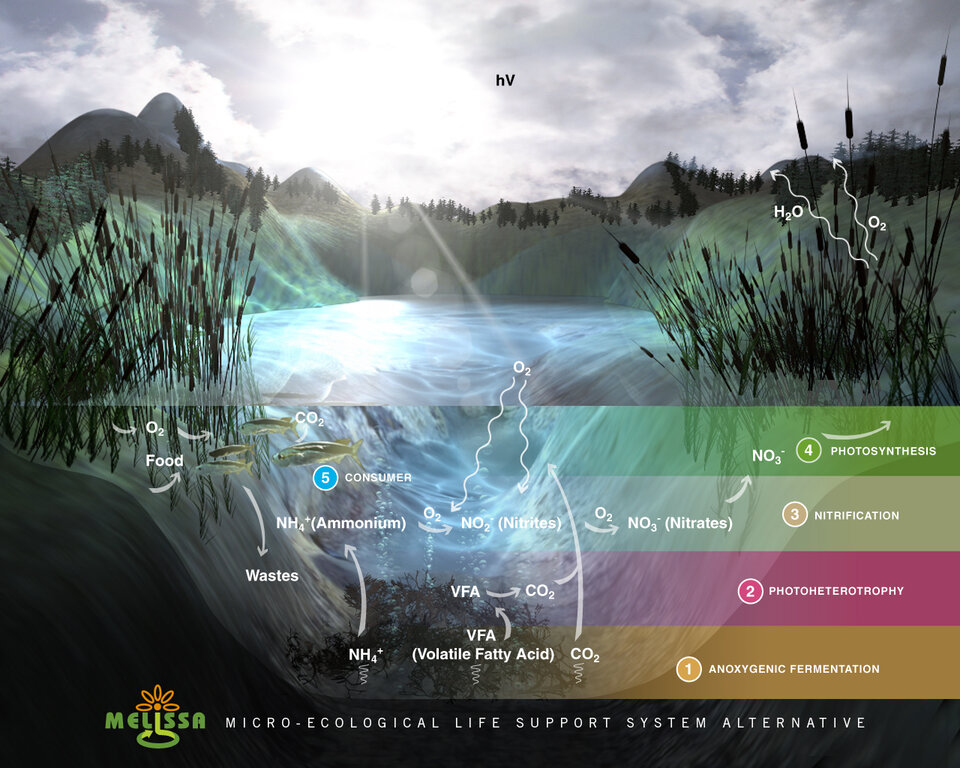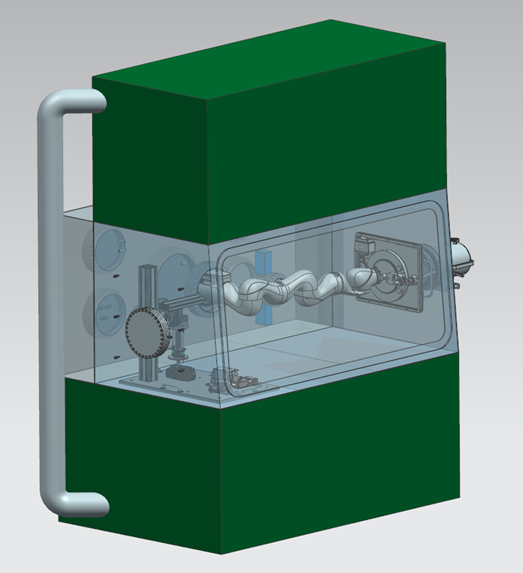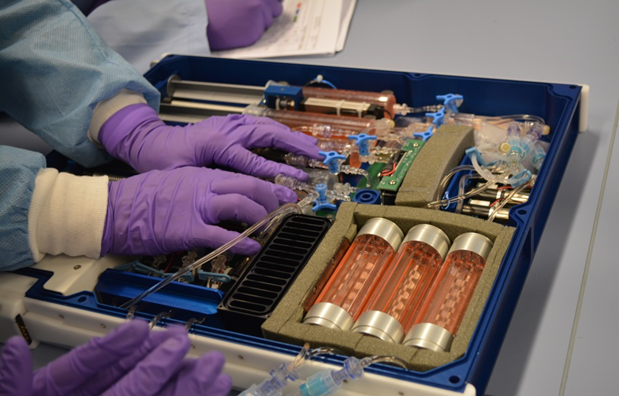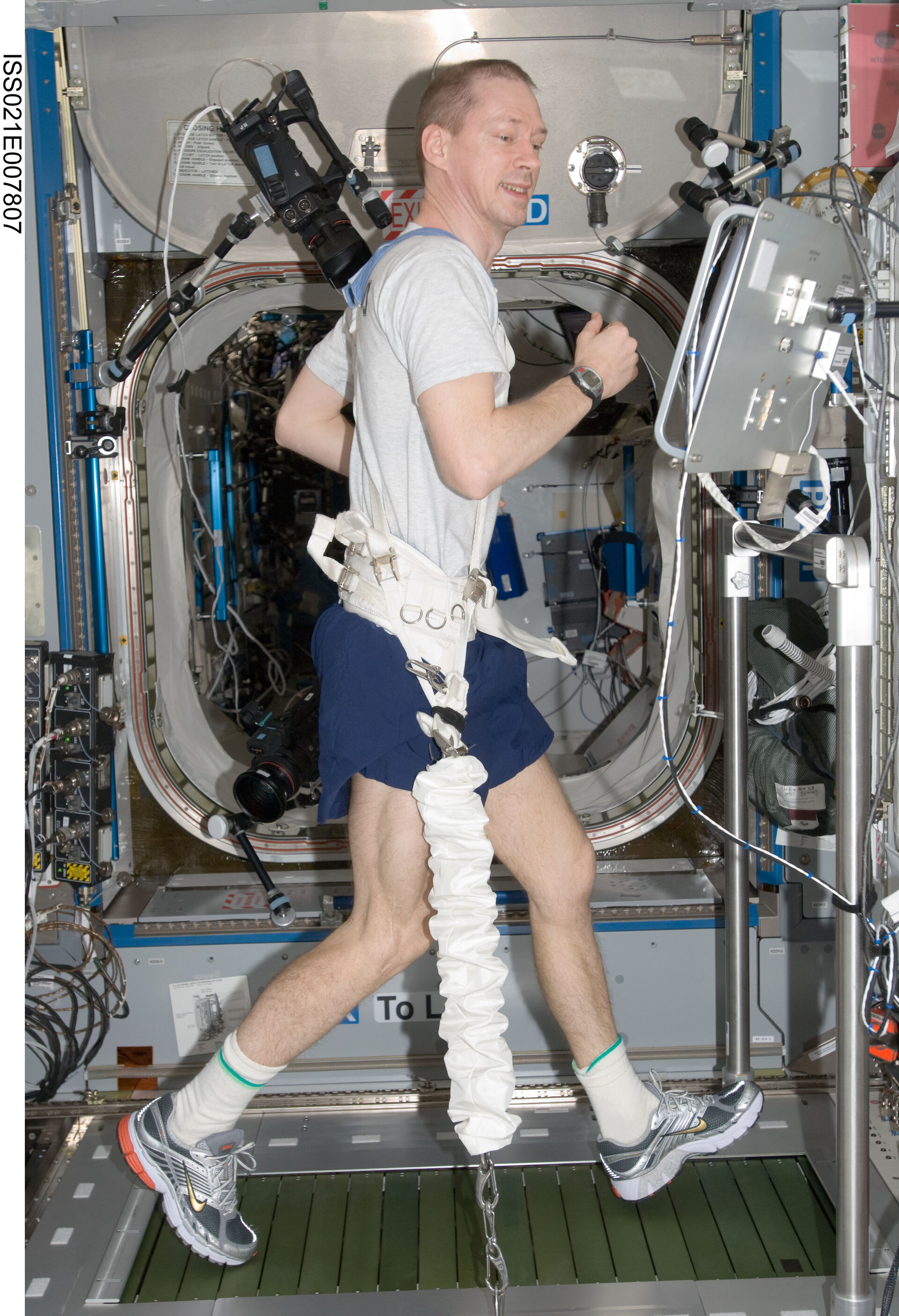Research and development
Medical and health activities
Space is playing an increasing role in supporting various aspects of Health. An overview on recent, current, and planned projects supported by ESA can be found under the different domains of health described in the link above.
Our activities cover the development of instruments for countermeasures to compensate the effects of microgravity on the body (muscles and bone loss)for monitoring astronauts' physiological parameters to perform telemedicin and assisted medical operations (tele-echography) to test virtual reality simulators.
Environmental control and life support system

MELiSSA (Micro-Ecological Life Support System Alternative) is the European Project closed life support system. It aims to produce food, water and oxygen for manned space missions where otherwise these supplies would result in a tremendous cost. Therefore, the life support system has to be increasingly regenerative.
The driving element of MELiSSA is the recovering of food, water and oxygen from organic waste carbon dioxide and minerals, using light as source of energy to promote biological photosynthesis. It is an assembly of processes (mechanical grinding, bioreactors, filtration, wet oxidation, etc.) aiming at a total conversion of the organic wastes and CO2 to oxygen, water and food.
It is based on the principle of an "aquatic" lake ecosystem where waste products are processed using the metabolism of plants and algae which in return provide food, air revitalization and water purification.
Physical sciences
Our activities aim at developping instruments to better understand physics in microgravity and in hypergravity and provide advanced devices in the domains of imaging spectrometry, heat transfer, soft matter dynamics, microscopy, X-rays, composite materials.
Life sciences

Our activities aims at developing instruments to support research in Space to understand Cell behaviour and their mechanisms in microgravity, to support exploration and detection of traces of life in exploration, to support as well the handling of samples for future MARS, lunar, or asteroids return missions in dedicated facilities. We also develop instruments to perform measurements of biological parameters in blood (Point of Care diagnostics)
Life and Physical Sciences and life support laboratory

The Lab supports work on life and physical sciences instrumentation and experiments for microgravity research, life support and environmental control and other exploration related activities, including experimental flight payloads, life support system development or activities for planetary exploration. The Lab can investigate and test a wide variety of factors, including prolonged effects of low- or hyper-gravities.
But the Lab is more than just a place for testing or rehearsing space mission payloads. Its facilities also support flight projects, such as ATV disinfection and microbiological control campaigns, planetary protection-related activities for ExoMars and technology development activities.
The laboratory proposes the use of a 8m Large Diameter Centrifuge for customer's experiments Sciences and verification test, and the support of the program Spin your Thesis.
Spin your thesis

Each year, students (phD) use the LDC to run their experiments in hypergravity, either in Life Sciences or Physical Sciences. The SYT campaign welcome 4 teams during 15 days. The laboratory is made available to prepare the experiments. Our support team provides their help to maximise the success of the students' research.




